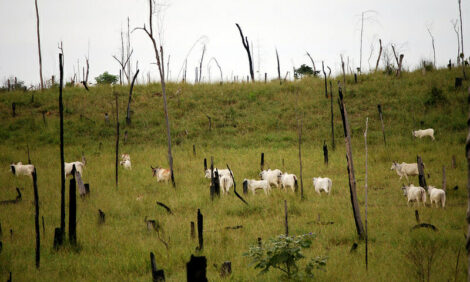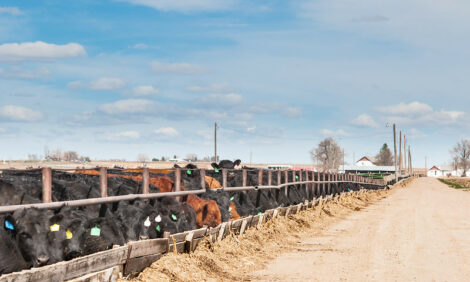



NCBA Warn of Consequences of Ethanol Mandate
US – The National Cattlemen’s Beef Association (NCBA) submitted comments to the Environmental Protection Agency (EPA) today opposing a proposal from the ethanol industry to increase the ethanol blend percentage in gasoline from 10 to 15 per cent.“Changes made to the ethanol blend percentage will impact all industries that rely on corn, not just the ethanol industry,” said Kristina Butts, NCBA manager, legislative affairs. “Before considering raising the blend percentage, the government should first take a serious look at how it would affect corn and cattle markets, and whether corn production would be able to keep pace with a higher mandate.“
Corn ethanol production is significant to the cattle industry because of its impact on feed grain prices. In 2008, livestock producers experienced significantly higher feed costs as a direct result of competing demands for corn and by higher energy prices. Since January of 2008, cattle feeders have lost a record $5.2 billion in equity due to high feed costs and economic factors which have negatively affected beef demand. According to the United States Department of Agriculture (USDA) Economic Research Service (ERS), in 2008, feed costs for livestock, poultry and dairy reached a record high of $45.2 billion – an increase of more than $7 billion over 2007 costs. Yet farm gate cattle and calf receipts have essentially remained flat, at between $49 and $50.2 billion during the past five years.
“Cattle producers support an open and free market as the best driver of competition and innovation in all industries, including the renewable energy sector,” said Butts. “Artificially diverting more of the corn crop to ethanol production, without considering the possible negative impacts on other industries is bad public policy.”
Projections show that increasing the blend percentage from 10 to 15 per cent would require an immediate 4.5 billion gallons of ethanol, and would require approximately 1.6 billion bushels of corn—which is nearly equivalent to the amount of corn used by the cattle industry in an entire year.“Cattle producers support energy independence and the development of the renewable fuels industry,” Butts continued. “What we don’t support are government mandates that disrupt the market and favor one industry at the expense of others. All we’re asking for is a level playing field.”
TheCattleSite News Desk


